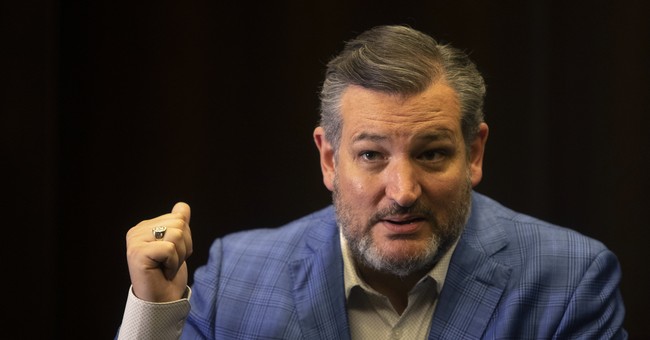Before we get to Cruz’s remarks, let’s set the stage for them.
In the immediate aftermath of the hearings, Schumer – who was then the Minority Leader – told the Washington Post in response to the Democrat outrage that “I’ve had a long and serious talk with Senator Feinstein. That’s all I’m going to say about it right now.” The paper also reported that he wouldn’t address questions about her position on the powerful committee.
A month later and after the media declared Joe Biden the winner of the presidential election, Feinstein announced she would not be seeking a leadership position on the Judiciary Committee. Schumer issued a conveniently-timed response a short time later, saying that he was “deeply grateful for Senator Feinstein’s leadership and contributions to our caucus and country as the Ranking Member on the Senate Judiciary Committee” and stating that she would “continue her work as one of the nation’s leading advocates for women’s and voting rights” etc.
Two weeks later, Senate Dems picked Durbin to lead the committee, whether it be in a ranking role or chairman (the two Georgia Senate runoffs had not been held yet, so Senate control was still unknown).
Here’s what Cruz claims really happened behind the scenes prior to Feinstein announcing she wouldn’t seek the leadership position:
What Cruz says makes sense, especially considering the liberal activist outrage after the Barrett confirmation and Schumer’s comments about having a “serious talk” with Feinstein. It’s almost like Schumer put pressure on her in public and in private basically forced Feinstein’s hand, giving her no choice but to make the eventual announcement.
In the immediate aftermath of the hearings, Schumer – who was then the Minority Leader – told the Washington Post in response to the Democrat outrage that “I’ve had a long and serious talk with Senator Feinstein. That’s all I’m going to say about it right now.” The paper also reported that he wouldn’t address questions about her position on the powerful committee.
A month later and after the media declared Joe Biden the winner of the presidential election, Feinstein announced she would not be seeking a leadership position on the Judiciary Committee. Schumer issued a conveniently-timed response a short time later, saying that he was “deeply grateful for Senator Feinstein’s leadership and contributions to our caucus and country as the Ranking Member on the Senate Judiciary Committee” and stating that she would “continue her work as one of the nation’s leading advocates for women’s and voting rights” etc.
Two weeks later, Senate Dems picked Durbin to lead the committee, whether it be in a ranking role or chairman (the two Georgia Senate runoffs had not been held yet, so Senate control was still unknown).
Here’s what Cruz claims really happened behind the scenes prior to Feinstein announcing she wouldn’t seek the leadership position:
Cruz had something to point out about that, especially about the noteworthy timing of it all. “Now, Dianne Feinstein was slated to be the next chairman of the Judiciary Committee if the Democrats took the majority. Because the radical left wing was so angry, within days, Chuck Schumer announced Feinstein is no longer in line to be chairman of the Judiciary Committee,” Cruz outlined, going on to mention quite the illustration. “Basically, he took Feinstein to a back alley and effectively shot her. And it was giving in to the most extreme left-wing voices the Democrat Party.”
This move, Cruz explained, actually went against Senate rules. Feinstein’s fellow Democrats have that much contempt for her. Durbin is the chair, as the next most senior member. He’s also the majority whip, though. “Under Senate rules typically, the majority leader, the minority leader, the majority whip, the Minority Whip can’t be a committee chairman also. There’s a basic principle that if you have one leadership position, you can’t have another one,” Cruz laid out.
What Cruz says makes sense, especially considering the liberal activist outrage after the Barrett confirmation and Schumer’s comments about having a “serious talk” with Feinstein. It’s almost like Schumer put pressure on her in public and in private basically forced Feinstein’s hand, giving her no choice but to make the eventual announcement.

